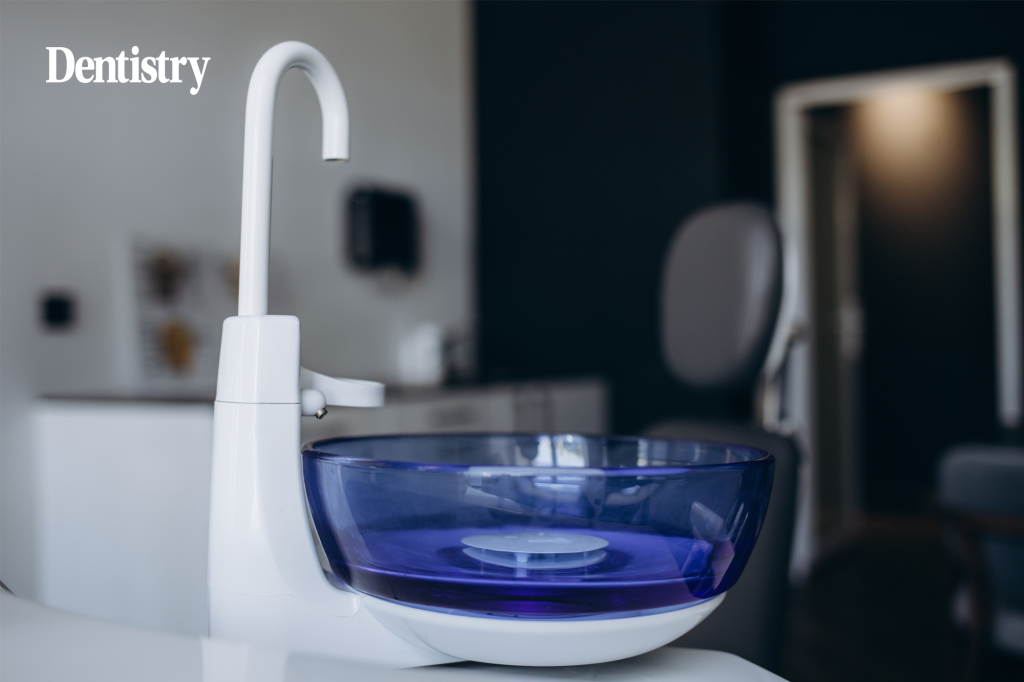
Jenny Nixon, business development director at Dentisan, explores why biofilm is so prevalent in dental unit water lines and what can be done to prevent it.
The challenge with biofilm is widespread in dental practices, particularly in dental unit water lines (DUWLs) which, due to their very nature, provide the ideal environment for bacteria and biofilms to thrive.
If biofilm formation is not strictly controlled, the water quality will soon deteriorate, resulting in a failure to comply with DUWL water quality guidelines and a health risk to patients. This is why it is important for dental practices to establish robust systems and protocols to manage, monitor and maintain their DUWLs.
One easy option, tailor-made specifically for dental practices, is to join Dentisan’s Clean Water Club, a free online portal for managing, monitoring, and maintaining every DUWL in the practice.
Find out more about Clean Water Club.
This article will discuss what biofilm is, why it is so prevalent in DUWLs, and what can be done about it.
In addition, for a more comprehensive exploration of this topic, watch on demand my recent Dentistry webinar, ‘Water, biofilm and dental unit water lines: manage, monitor and maintain’.
What is biofilm?
The term biofilm refers to a collection of microorganisms that adhere to surfaces and are surrounded by a protective slime that the bacteria secrete.
Initially, just a small number of individual planktonic bacteria stick to a surface, such as the internal wall of a pipe or tube, but the growth then gathers pace, with more bacteria accumulating on the formed layer until it builds to a level where water quality is compromised.
As well as in DUWLs, biofilms are commonly found in streams and rivers, cooling towers and piped water systems. Even the plaque that readily forms on teeth and around the gums is a type of biofilm.
Why is biofilm so prevalent in DUWLs?
DUWLs are particularly prone to biofilm formation for a variety of reasons:
- The water line network of narrow, small-bore tubing and a low flow rate (typically 30ml/min) encourages the build up of biofilm
- Water only flows through tubing when instruments are in use, causing minimal disruption to the growing biofilm
- The warm surgery environment provides the ideal temperature range for bacteria to flourish
- Bacteria prefer non-toxic materials like those used to make DUWL tubing.
Manage, monitor and maintain
Regular testing of DUWLs and the use of products specifically designed to control and prevent biofilm formation are essential to keep on top of DUWL compliance.
Dentisan’s waterline product range includes biological dip slides, ready-to-use biofilm disinfectant used to purge contaminated water lines and a daily disinfectant for continuous use in DUWLs, which helps control biofilm formation.
Join the club!
Dentisan’s Clean Water Club offers practices a free and easy way to keep tabs on, and demonstrate compliance with, DUWL water quality standards.
By enrolling with the Clean Water Club, dental practices can register each surgery and upload images of dip slides, which are assessed and reported on by Dentisan’s in-house technicians. Once assessed, each surgery will receive a pass or fail report by e-mail.
Individual surgery certificates are available for download and display in the practice once consecutive pass results have been received.
Never run out of waterline products
Clean Water Club also gives practices access to member discounts and helps a practice stay on top of stock levels. When joining the Clean Water Club, practices set a regular subscription for Dentisan’s waterline products helping with the process of managing, monitoring, and maintaining DUWLs:
- Bioclear ready-to-use disinfectant for DUWLs
- Bioclear Daily disinfectant for continuous use in DUWLs
- Biological Dip Slides to continually monitor input and output water quality.
Registering with the Clean Water Club is simple and open to all practices with accounts with Henry Schein.
Dentistry Webinar on-demand
Water, biofilm and dental unit water lines: manage, monitor and maintain
In her insightful Dentistry Webinar on Thursday 11 April 2024, Jenny Nixon presented an in-depth discussion of the risks surrounding biofilm contamination of DUWLs, demonstrated how to monitor and recognise the signs of biofilm build-up within a dental unit and explained the effect of input water quality on dental unit water lines.
Catch up here.
For more information the Clean Water Club, visit info.henryschein.co.uk/en-gb/clean-water-club.


